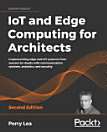Understanding Agent Systems: Edition 2
આ ઇ-પુસ્તક વિશે
લેખક વિશે
Mark d’Inverno has been working in the field of agent-based systems for well over 10 years and is currently Professor of Computer Science in the Cavendish School of Computer Science at the University of Westminster. He gained a BA in Mathematics in 1986 and an MSc in Computation in 1988 both from Oxford University, and in 1998 was awarded a PhD from University College London. He has published numerous papers in the area and is an expert in formal sepcification of agent systems. Prof d’Inverno is a founder of the UKMAS workshops, has chaired two UKMAS wortkshops and is a member of the UKMAS Steering Committee. He sits on several conference and workshop programme committees.
Michael Luck is a Senior Lecturer in the Intelligence, Agents and Multimedia Group in the School of Electronics and Computer Science at the University of Southampton, UK. He has worked in the field of agent technology and multi-agent systems for over ten years, having previously led the Agent-Based Systems Group at the University of Warwick for seven years, and having gained his PhD from University College London in 1993 for work on agent-based discovery. Dr Luck is a co-founder of the UK Special Interest Group on Multi-Agent Systems, and currently Chair of the UKMAS Steering Committee. He is a member of the Advisory Boards of FIPA (the agent standards body), MAAMAW (the European agent conference) and CEEMAS (the Central and Eastern European agent conference). He has served on numerous programme committees for agent conferences and workshops, and has organised and chaired several international conferences in the area of agents, including those for industry. Dr Luck has contributed to policy making forums for national and European agencies, has reviewed proposals for many national and international funding agencies, and has published extensively in this area (with over 75 papers and 5 books). Since 2000, he has been Director of AgentLink, the European Network of Excellence for Agent-Based Computing.




